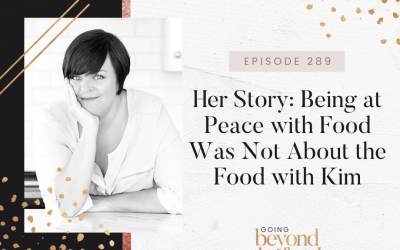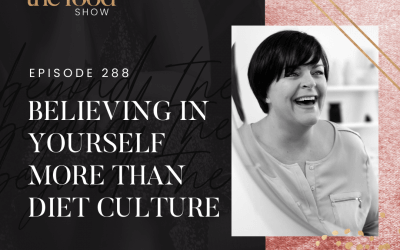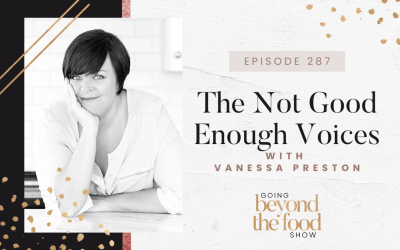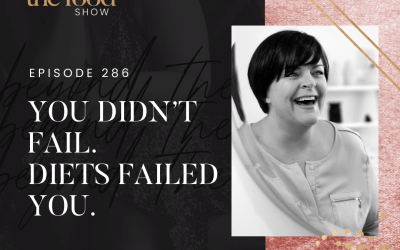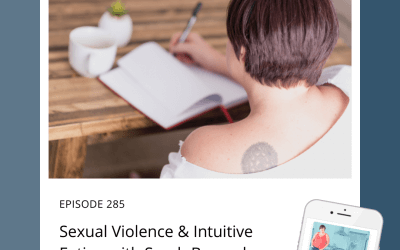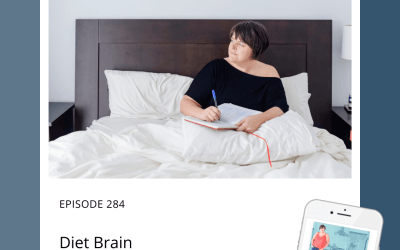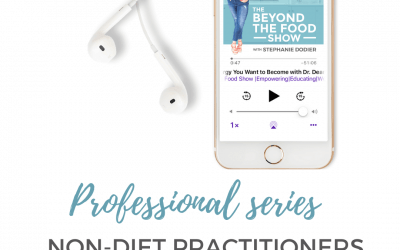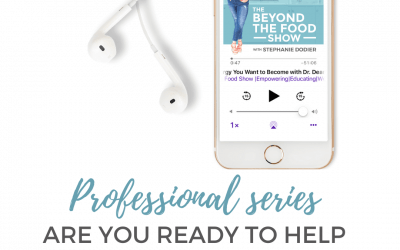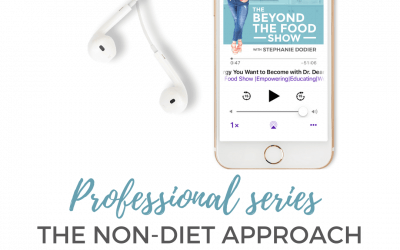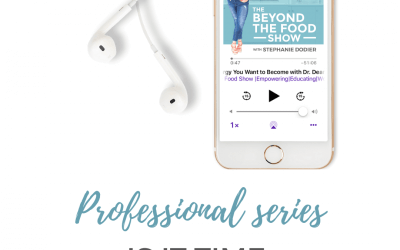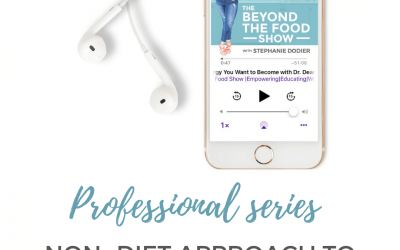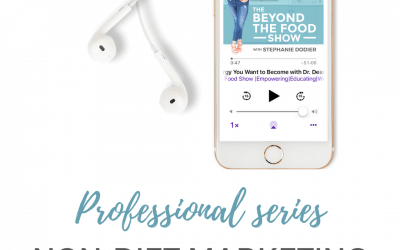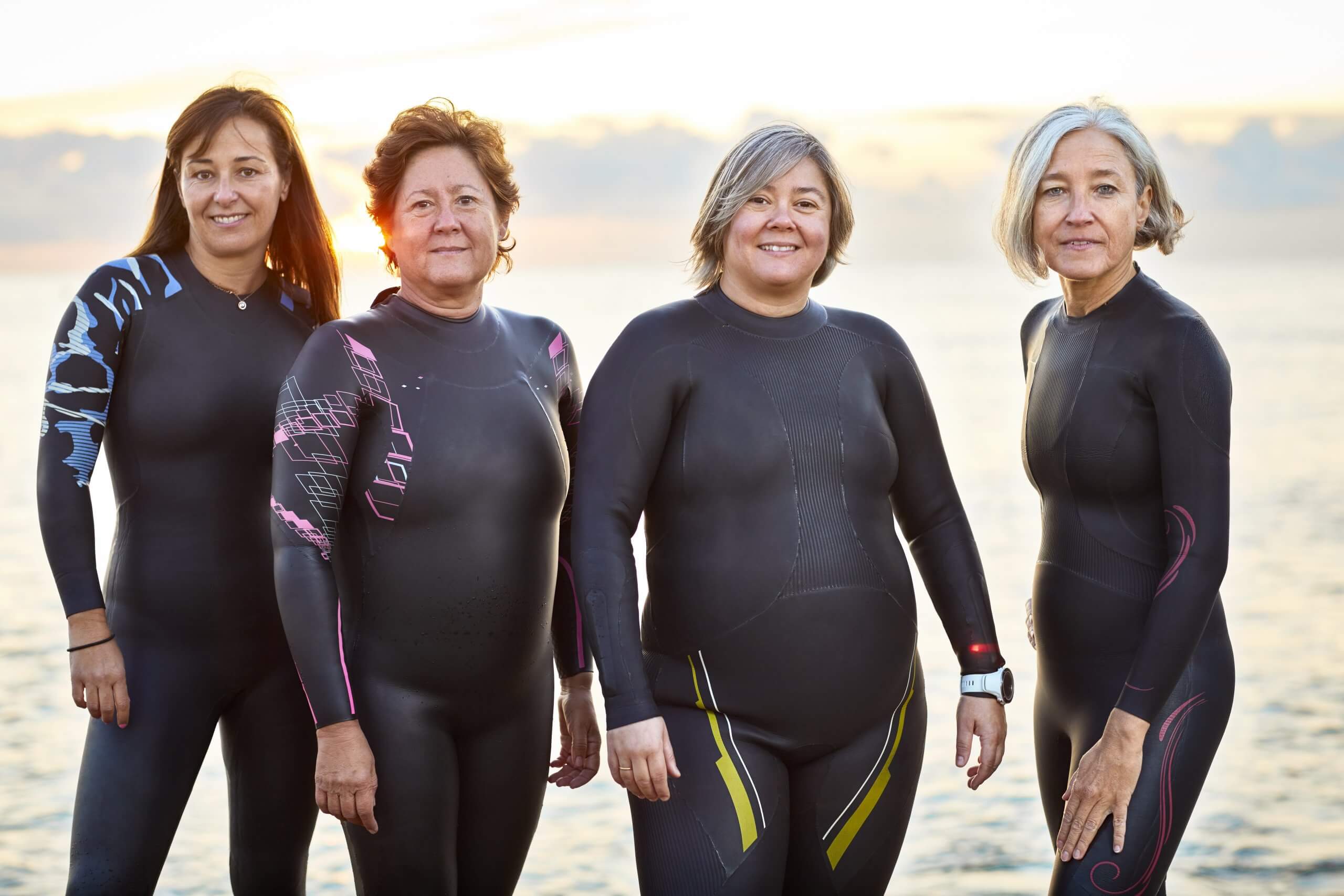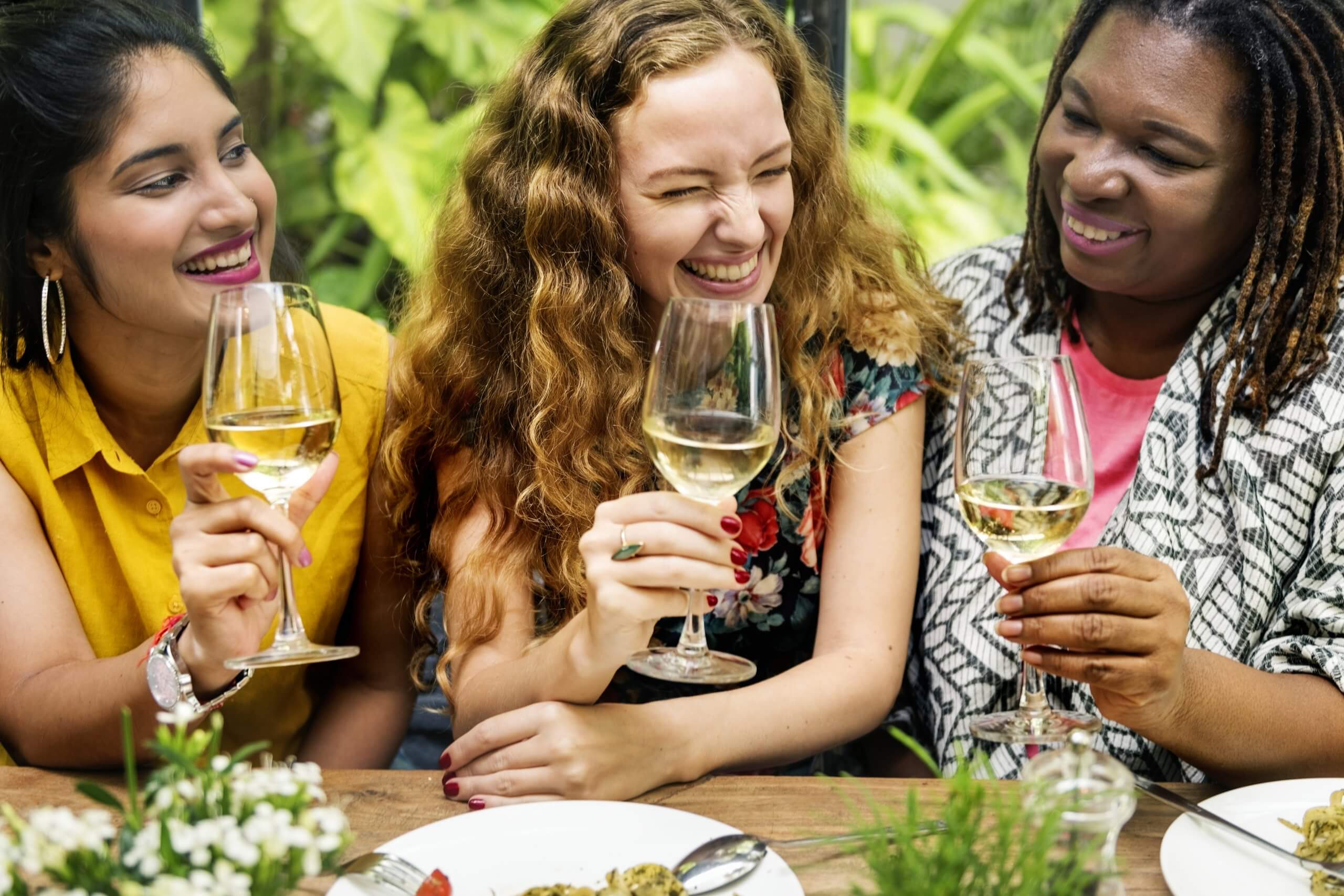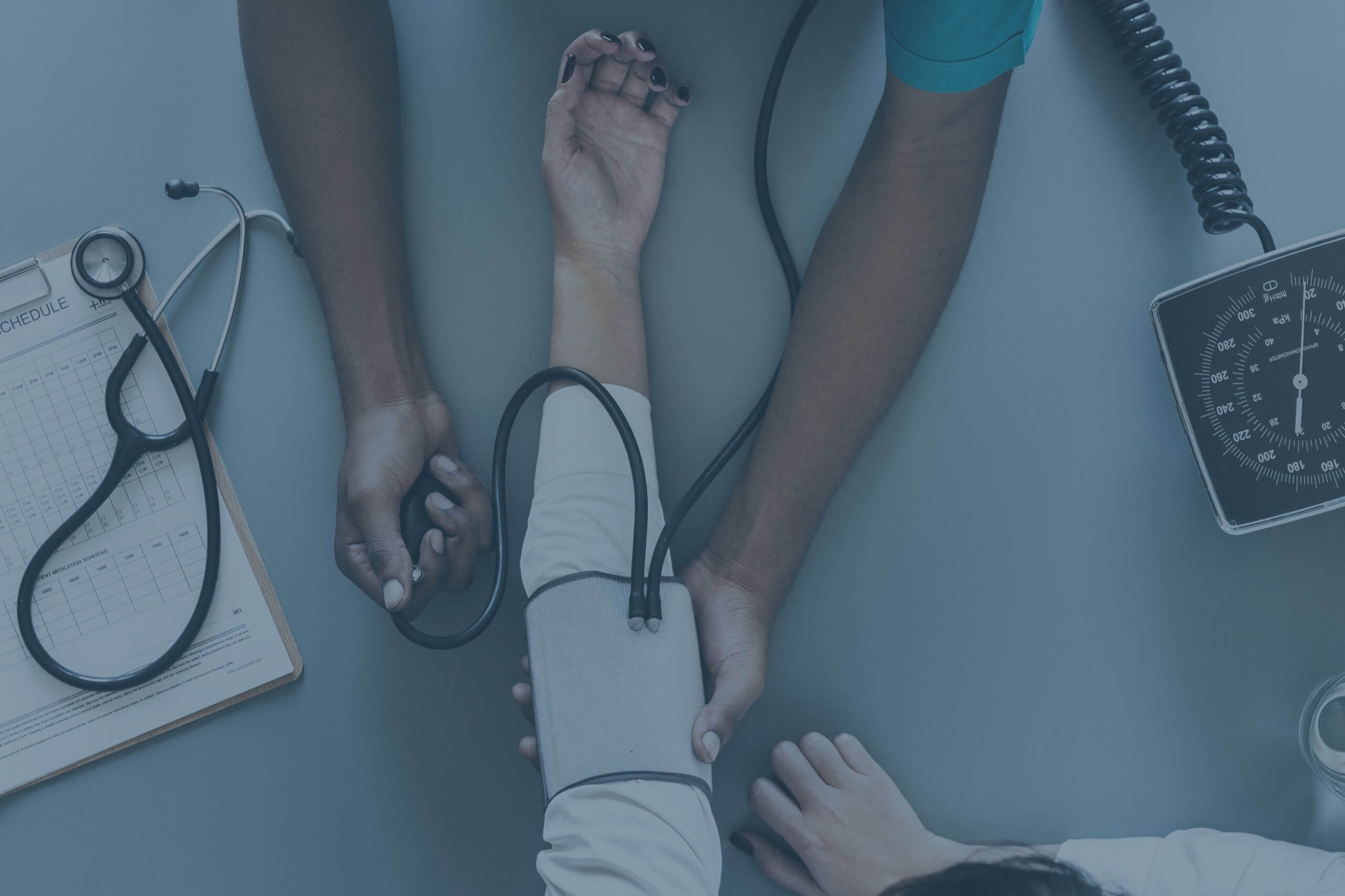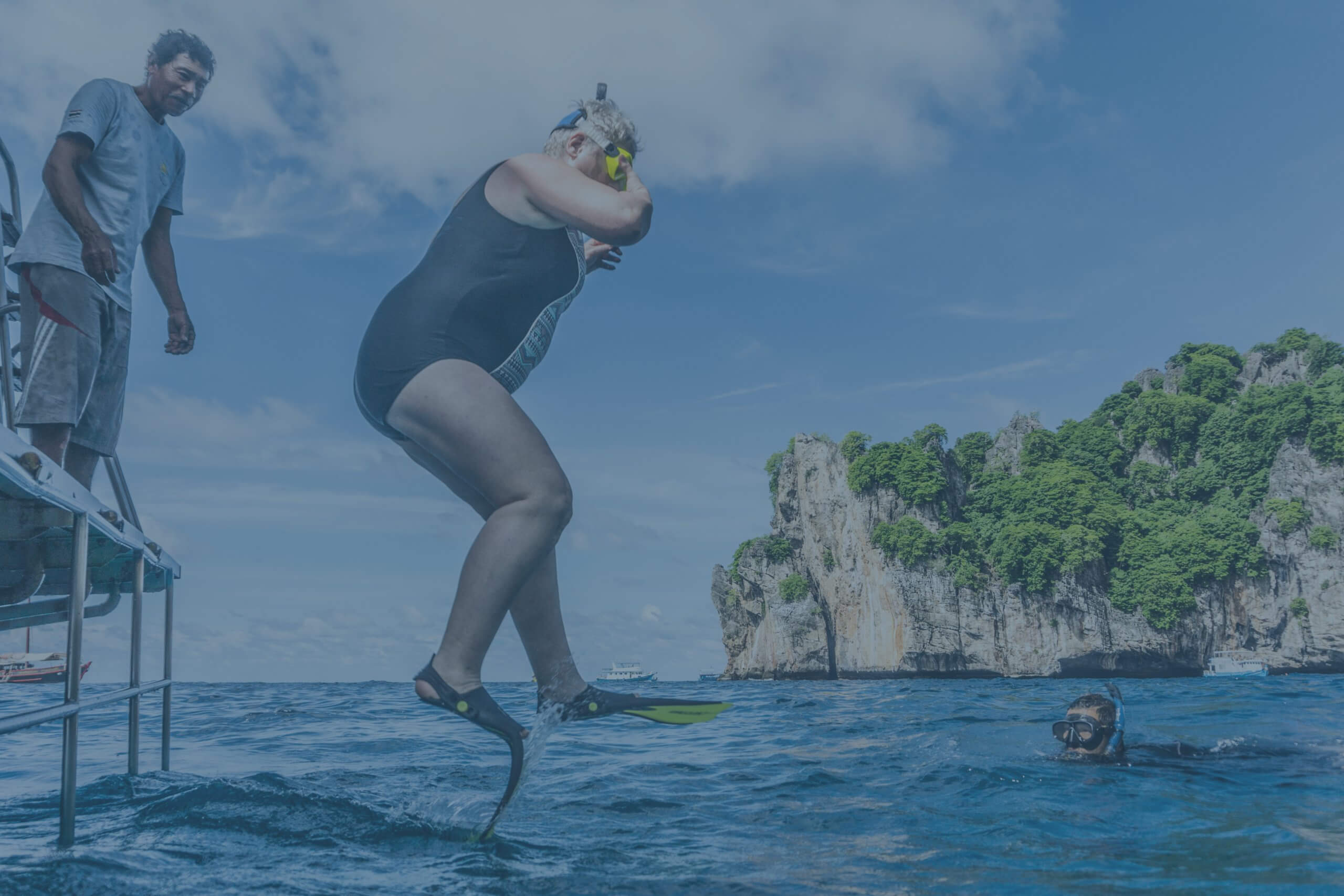THE NON-DIET COACHING PODCAST
It’s Beyond the Food Podcast
If you’re a coach, nutritionist, therapist, or health professional who wants to coach without diet culture—you’re in the right place.
Join Stephanie Dodier, Non-Diet Nutritionist and founder of the Non-Diet Coaching Certification, for real-talk episodes that help you coach behavior change, body image, and mindset—without making weight loss the goal.
You’ll get practical tools, evidence-informed frameworks, and behind-the-scenes insights to build your skillset and your business—ethically and confidently.
This is the podcast for weight-neutral professionals ready to stop winging it and start coaching with skill.
New episodes drop Mondays.
Over 1.4M downloads since 2016.
Subscribe to our podcast on your favorite podcast platform.
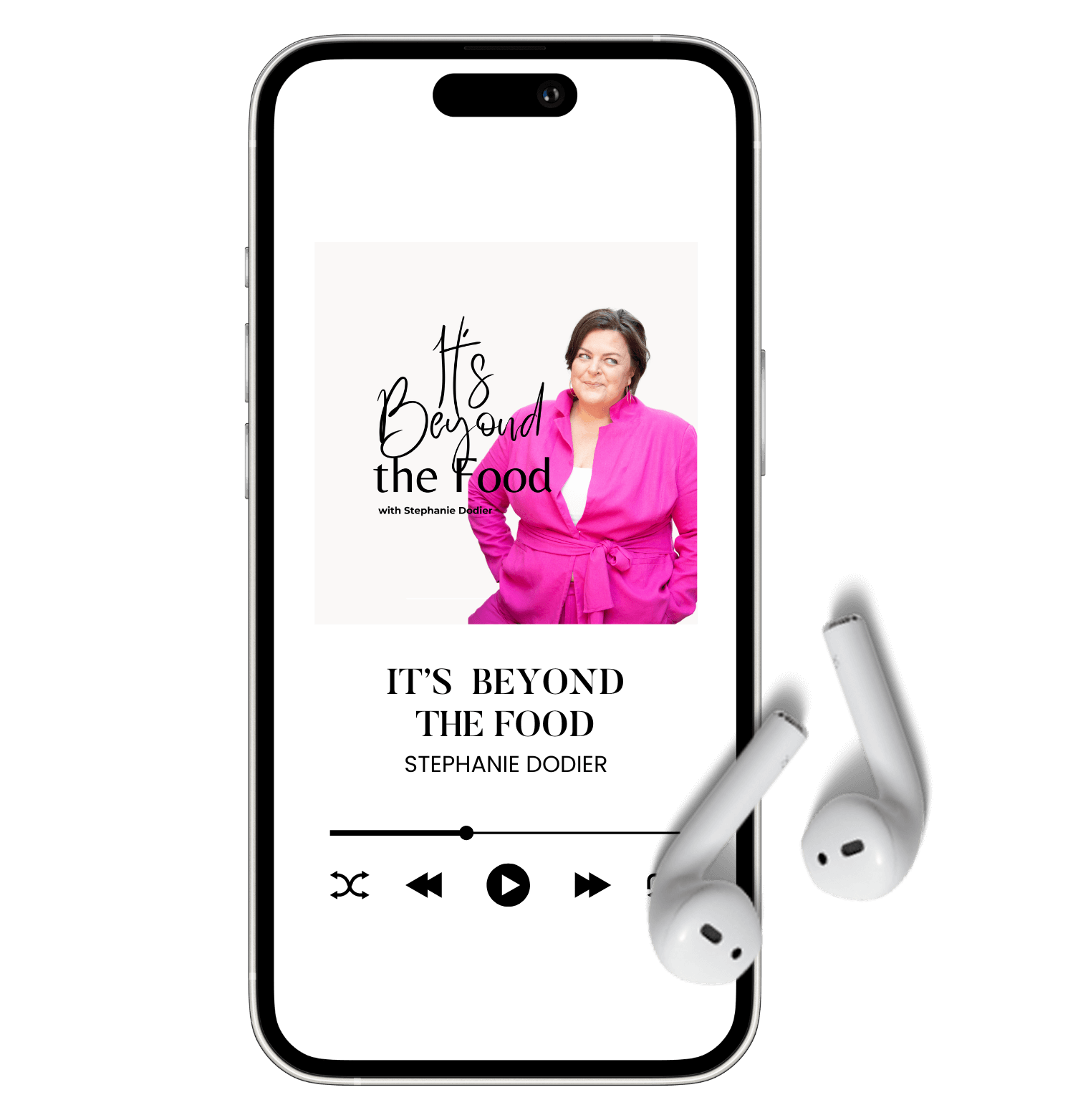

THE WELL-BEING FEMINIST PODCAST
It’s Beyond the Food Podcast
Join Non-Diet Nutritionist Stephanie Dodier and with each episode Stephanie will guide you on how to go beyond the food. You’ll get resources and tools to coach mindset, body image and weight neutral health while building a lifestyle & ethical coaching business.
It’s Beyond The Food podcast is a top rated podcast since 2016 with over 1.3 millions downloads.
Subscribe to our podcast on your favorite podcast platform.
Our Most Recent Episodes
289-Her Story: Being at Peace with Food Was Not About the Food with Kim
Being at peace with food was not about the food with Kim, a student of Undiet Your Life. This is another installment of Her Story where we hear a “real woman” share her journey with our listeners in Undiet Her Life. Kim shares her journey inside Undiet Your Life Course.
288-Believing in Yourself More Than Diet Culture
Believing in yourself more than diet culture. Learn to cultivate an inner narrative that support believing it’s possible for you to change.
287-The Not Good Enough Voices with Vanessa Preston
Although I consider myself a confident woman today, it hasn’t always been this way. In fact, at 46...
286-You didn’t fail. Diets failed you.
You didn’t fail. Diets failed you. Although diet culture wants us to believe that we fail not their diet, it’s a lie. Science is clear: the #1 side effect of dieting is weight gain.
285-Sexual Violence & Intuitive Eating with Sarah Berneche
Sexual violence and Intuitive Eating. In this very powerful interview, Sarah Berneche will teach us the connection between sexual violence and disordered eating and how intuitive eating can be used for healing.
284-Diet Brain
Diet Brain a term I coined to illustrate how diet culture impacted women’s brains over time. We can undiet diet brain, and that’s what this podcast episode will help you do!
PRO Series: Non-Diet Practitioners Success Stories Vol. 2-S3 EP7
Non-Diet Practitioners Success Stories. Hear out our students’ wins. How they coach their clients and how much they charge for their programs.
PRO Series: Are You Ready to Help Clients in a Non-Diet Approach?-S3 EP6
Are you ready to help clients in a non-diet approach? Question I frequently receive. You’re likely ready. Find out in this episode of Pro Series podcast.
PRO Series: The Non-Diet Approach is for All Health Professions-S3 EP5
Non-Diet Approach is for All Health Professions: Therapist, Yoga Teacher, Personal Trainer, Health Coach, Social Worker, Nutritionist, Nurse, MD, ND.
PRO Series: Is It Time to Go Full Time with Kelsey Murphy-S3 EP4
Is it time to go full-time in your non-diet practice? That’s a frequent and a good question answered with guest Kelsey Murphy on the podcast.
PRO Series: Non-Diet Approach to Health and Nutrition-S3 EP3
Non- Diet Approach to Health and Nutrition. When health professionals encounter the non-diet approach to health, their first questions are: What about health? What about nutrition?
PRO Series: Non-Diet Marketing Framework-S3 EP2
Adopting a Non-Diet Marketing Framework is how you will attract clients ready to stop chasing weight as non-diet health professional. Here are five elements to include in your non-diet marketing strategy.
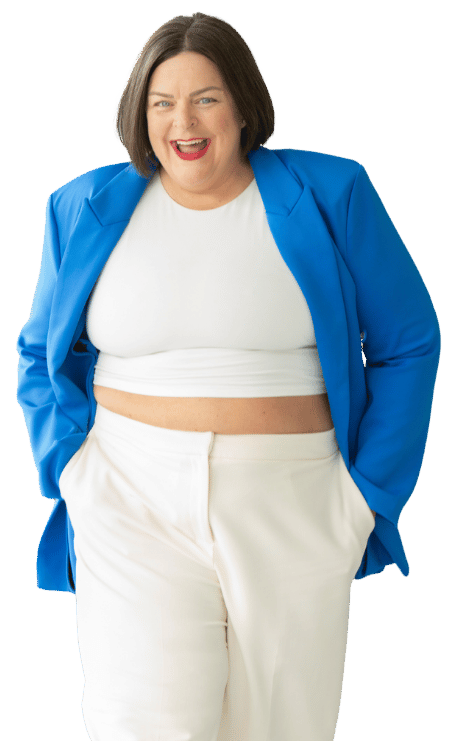
Welcome!
I’m Stephanie Dodier
I am a non-diet nutritionist, educator, and feminist business leader challenging everything we’ve been taught about food, health, and coaching.
I help health professionals confidently coach food and body without co-opting diet culture.
Join me in leading the health coaching revolution!
Ready? Let’s do this!
Free Assessment Tool
Let’s start coaching client with confidence
Use this free intake forms kit and evaluate your client with food, body image and mindset and set the foundation for transformative coaching relationships, rooted in trust and client empowerment.





